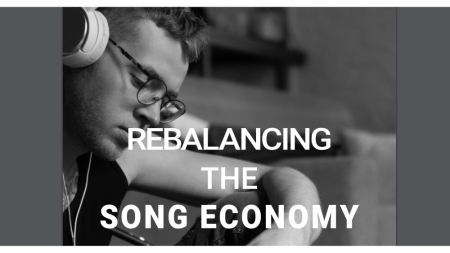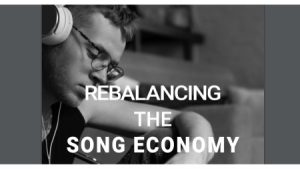By Jem Aswad, Variety | Ever since the music industry began its streaming-fueled recovery around five years ago, the songwriting and publishing communities have been protesting not only the uneven payment structure of streaming — which sees recorded-music rights holders being paid three times what publishing is paid — but also the imbalanced power and payment structures of the music industry. This situation has been thrown into dramatic relief in recent weeks by the formation of the songwriters’ group the Pact and its calls for artists to stop demanding credit and publishing income for songs they did not write — but the organization’s founders also say that it is just the first step in a music economy that has tilted against the people who create the very foundation of that economy: songs.
To summarize that quickly, the music industry saw its total value cut in half by illegal downloading and other forms of piracy in the first years of the 21 st century; the drastic drop in CD sales meant that the once-substantial income derived by artists, labels, publishers from those sales had plummeted precipitously. But as streaming rose and the industry adapted, artists came to accept that their recorded music — which garnered a fraction of the income in the streaming world that it had in the CD era — had essentially become the way to bring people to the place where they really made money: concerts, where fans not only buy tickets but merchandise as well as CDs and albums.
Needless to say, songwriters saw little income from that business model — which has been completely up-ended by the pandemic. Now, with most areas of the business looking at streaming as a if not the primary generator of income, the songwriter’s plight is more dire than ever, according to “Rebalancing the Song Economy,” an authoritative new report by industry analysts Mark Mulligan and Keith Jopling of Midia Research(with an introduction by Abba’s Bjorn Ulvaeus).
The 35-page report, which is available here for free, lays out both the history of this dilemma and some (admittedly difficult) proposed solutions, but what may be unprecedented is the way that it lays out how skewed against songwriters the new music economy is. A handful of the many statistics from the study follow:
● The global music industry revenues (recordings, publishing, live, merchandise, sponsorship) fell by 30% in 2020 due to the combined impact of COVID-19 and a recession
● Streaming has created a song economy, making the song more important than ever, yet music publisher royalties are more than three times smaller than record label royalties
● Streaming will bring further strong industry growth, reaching 697 million subscribers and $456 billion in retail revenues, but the royalty imbalance means that label streaming revenue will grow by 3.3 times more than publisher streaming revenue
● The current royalty system assumes all songs are worth the same – they are not – and rewards poor behavior that dilutes artist and songwriter royalties
● Music subscribers believe in the value of the song: twice as many (60%) state that the song matters more than the artist, than think the artist matters more (29%)
● They also believe that songwriters should be remunerated properly: 71% of music subscribers consider it important that streaming services pay songwriters fairly
In a section titled “The Songwriter’s Paradox,” it lays out the ways that the song has become more important than ever, but, paradoxically, the songwriter has less income and influence
Read the rest of the article here:
https://variety.com/2021/music/news/songwriters-short-changed-music-streaming-economy-midia-1234954984/


